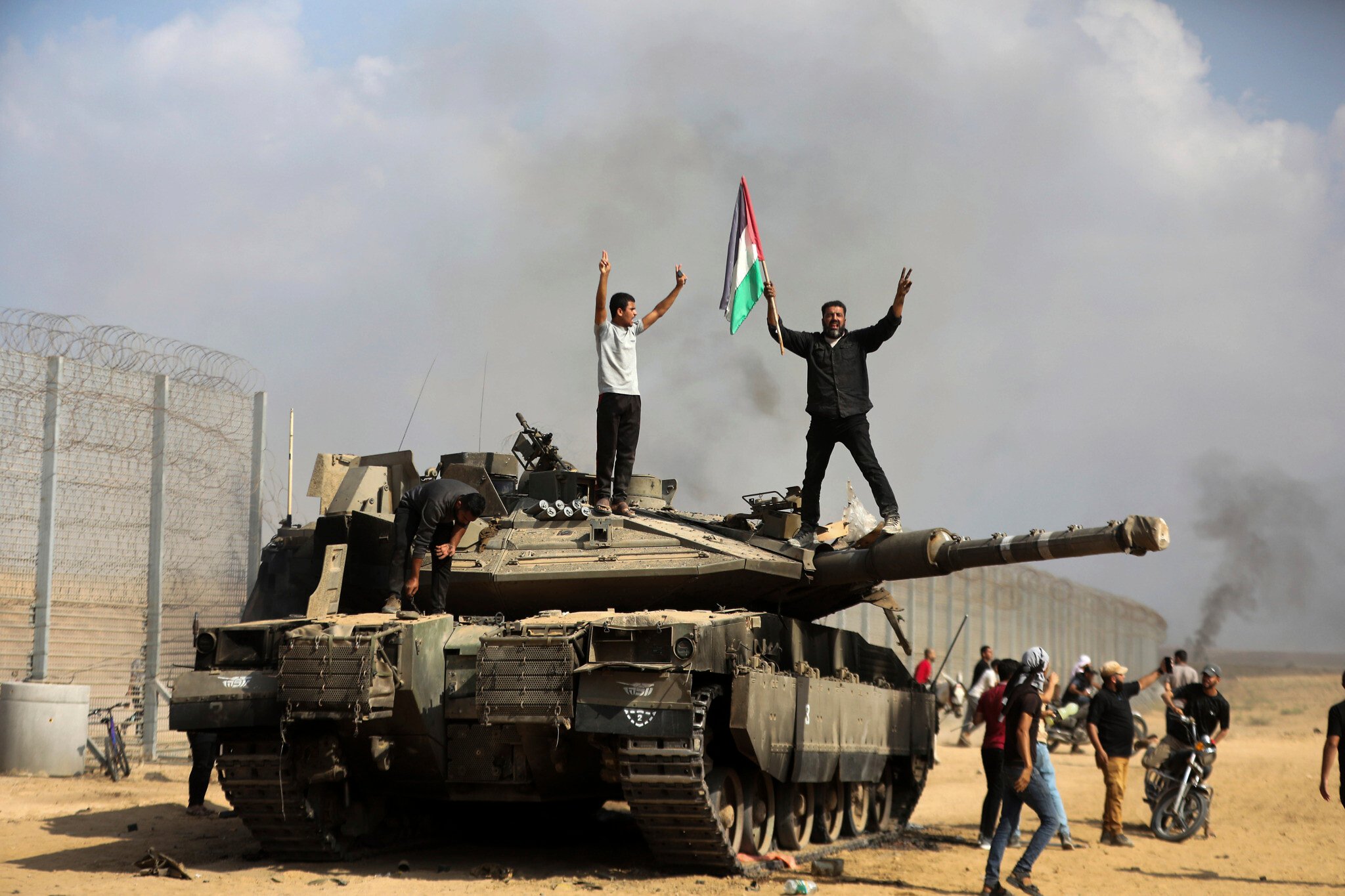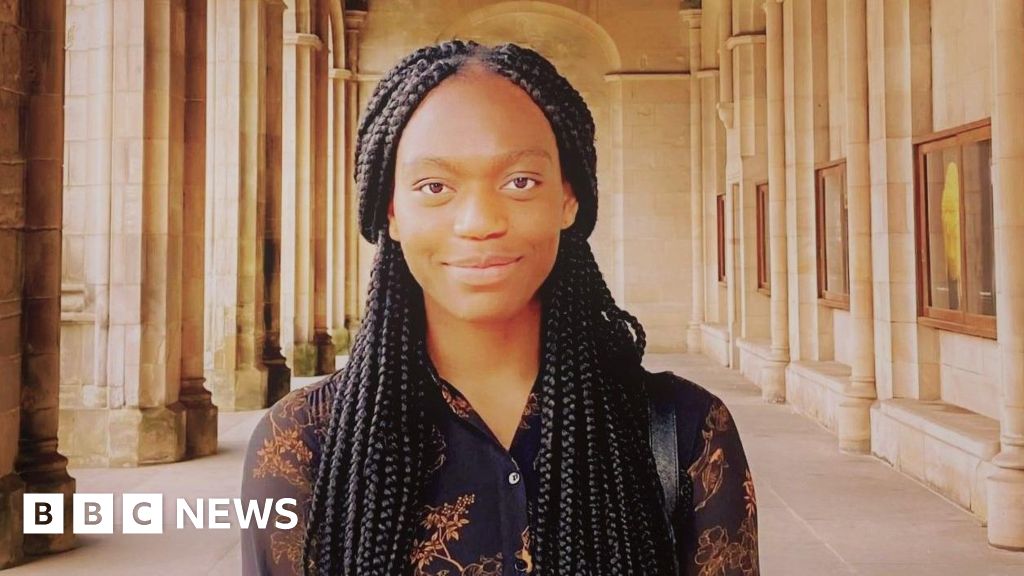The other thing I was noting, is the obvious point that only living people, ie the people who survive, are going to be in position to be biased about anything. Again, I don't buy the argument that the survival of Israel depends on the perpetuation of the status quo vis-a-vis the Palestinians. Countries have abandoned similar policies/systems and have not all collapsed as a result.I agree with your primary point, though I may phrase it more like the chance for chance for long term survival of a Jewish state of Israel absolutely requires a peaceful settlement.
The point remains, as long as the context can be chosen it is quite easy find examples of countries and/or nations that have not survived.
You are using an out of date browser. It may not display this or other websites correctly.
You should upgrade or use an alternative browser.
You should upgrade or use an alternative browser.
[RD] War in Gaza: News Thread
- Thread starter Birdjaguar
- Start date
- Status
- Not open for further replies.
GeneralZift
Professional
- Joined
- Feb 25, 2019
- Messages
- 1,081
Here's what I can't wait for...
I know that they will decide that the only way* to make peace is by doing a 'two state' solution except... the new Palestinian state would be a puppet.
Oh yes, we couldn't handle Hamas in office... so here is your new democratically elected leader: Israeliman TotallyArab - don't worry, he's USA-approved!
(Then when everything goes to **** because this puppet gives everything away to the West, they will say... Look... the Palestinians could never govern themselves anyway)
I know that they will decide that the only way* to make peace is by doing a 'two state' solution except... the new Palestinian state would be a puppet.
Oh yes, we couldn't handle Hamas in office... so here is your new democratically elected leader: Israeliman TotallyArab - don't worry, he's USA-approved!
(Then when everything goes to **** because this puppet gives everything away to the West, they will say... Look... the Palestinians could never govern themselves anyway)
Last edited:
Ordnael
Emperor
What would the Palestinians have to loose (that they haven't lost already), at least this puppet leader wouldn't ratter the hornets nest and thus he would ensure peace.Here's what I can't wait for...
I know that they will decide that the only wait to make peace is by doing a 'two state' solution except... the new Palestinian state would be a puppet.
Oh yes, we couldn't handle Hamas in office... so here is your new democratically elected leader: Israeliman TotallyArab - don't worry, he's USA-approved!
(Then when everything goes to horsehocky because this puppet gives everything away to the West, they will say... Look... the Palestinians could never govern themselves anyway)
Israel do not want and would not respect any peace. This is why Netanyahu / Israel funded Hamas to weaken the PLA. This is why they maintain an illegal occupation of Palestinian land. This is why they continually claim more land for more illegal settlements. None of this would stop under an "ensured peace", which would then give rise to more people willing to resort to violence to oppose said illegal occupation.What would the Palestinians have to loose (that they haven't lost already), at least this puppet leader wouldn't ratter the hornets nest and thus he would ensure peace.
Ordnael
Emperor
Firs time ever I heard this theory!This is why Netanyahu / Israel funded Hamas to weaken the PLA.
Maybe at some point folks who "haven't heard things" should stop to consider that they're maybe not as clued-up about the situation as they profess to be? Just a thought.Firs time ever I heard this theory!

For years, Netanyahu propped up Hamas. Now it’s blown up in our faces
The premier's policy of treating the terror group as a partner, at the expense of Abbas and Palestinian statehood, has resulted in wounds that will take Israel years to heal from
You'll note I've deliberately chosen an outlet who in no way can be accused of being prejudiced towards IsraelMost of the time, Israeli policy was to treat the Palestinian Authority as a burden and Hamas as an asset. Far-right MK Bezalel Smotrich, now the finance minister in the hardline government and leader of the Religious Zionism party, said so himself in 2015.
According to various reports, Netanyahu made a similar point at a Likud faction meeting in early 2019, when he was quoted as saying that those who oppose a Palestinian state should support the transfer of funds to Gaza, because maintaining the separation between the Palestinian Authority in the West Bank and Hamas in Gaza would prevent the establishment of a Palestinian state.
While Netanyahu does not make these kind of statements publicly or officially, his words are in line with the policy that he implemented.

r16
not deity
- Joined
- Nov 10, 2008
- Messages
- 12,147
without trying to be insulting or anything , ı understand you are young .
hamas is the youth that threw rocks in the First Intifada as Arafat's Fatah was handicapped by promises of peace and stuff , in addition to ever present Israeli security measures . Think that was like in 1980s when Israel had attacked Tunusia . The Israeli support for Hamas would not be in the newspapers in those days . Average American Evangelist is not particularly bright , they need visible examples of danger to keep supporting things that happen in the Middle East .
hamas is the youth that threw rocks in the First Intifada as Arafat's Fatah was handicapped by promises of peace and stuff , in addition to ever present Israeli security measures . Think that was like in 1980s when Israel had attacked Tunusia . The Israeli support for Hamas would not be in the newspapers in those days . Average American Evangelist is not particularly bright , they need visible examples of danger to keep supporting things that happen in the Middle East .
Bonyduck Campersang
Staring into the distance
- Joined
- Dec 11, 2022
- Messages
- 4,681

St Andrews rector removed from role after Gaza 'genocide' email
Stella Maris was removed as president of the university court following complaints by students.
Stella Maris sent an email to all students referring to "genocidal attacks" by the Israeli government, shortly after she was elected in October.
An investigation found she had "breached her responsibilities" to students, but Ms Maris said it set a "dangerous precedent for freedom of speech".
To add to what Gorbles linked this story is a little older than that article goes. You could start in 1967 as the WSJ said in 2009:Firs time ever I heard this theory!
While under Egyption administration the Muslim Brotherhood where heavily suppressed. After Egypt lost control of Gaza to Israel after the 1967 Arab-Israeli war Israelis saw the Muslim Brotherhood in the Palestinian territories, including the wheelchair-bound Sheik Ahmed Yassin, as a useful counterweight to Arafat's PLO. Sheikh Yassin set up a wide network of schools, clinics, a library and kindergartens with Israeli support. Sheikh Yassin formed the Islamist group Mujama al-Islamiya, which was officially recognized by Israel as a charity and then, in 1979, as an association. Israel also endorsed the establishment of the Islamic University of Gaza, which it now regards as a hotbed of militancy.

Sheikh Ahmed Yassin, the founder of Hamas. Abid Katib/Getty Images
Last edited:
r16
not deity
- Joined
- Nov 10, 2008
- Messages
- 12,147
new Turkey can not be risked . As such whenever politics require New Turkey talk tough against Israel and Jews have it equally bad over there , Israel goes and kills some leader of some group . And it gets into a lot of arguments . So , like , if one is trying to score or something , one might try that Muslim Brotherhood was supported against Egypt or something , instead of Fatah maybe . Brotherhood had its own combat units on the field in '48 afterall , commanded by Egyptian Army officers .
Why not both?So , like , if one is trying to score or something , one might try that Muslim Brotherhood was supported against Egypt or something , instead of Fatah maybe .
Bonyduck Campersang
Staring into the distance
- Joined
- Dec 11, 2022
- Messages
- 4,681
Guess who's setting fire to Jewish homes in Jerusalem?
Moderator Action: Thread closed for review until further notice.
- Status
- Not open for further replies.
Similar threads
- Replies
- 6K
- Views
- 305K
